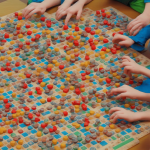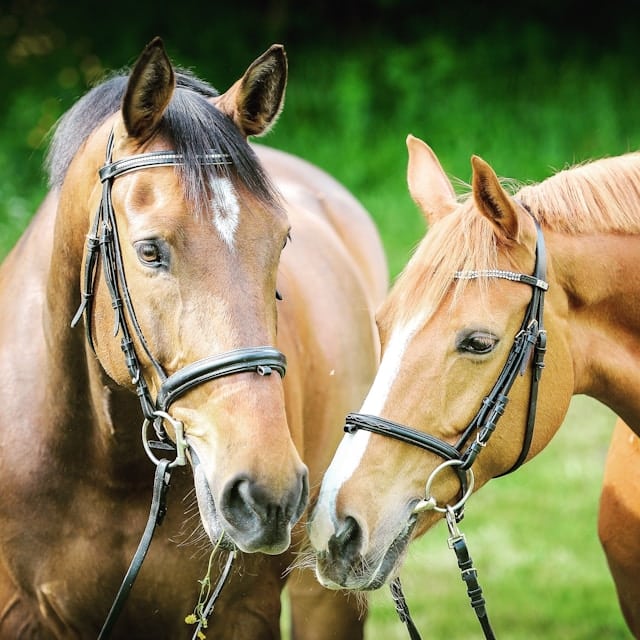Equestrianism is not merely a sport, it is a partnership; a unique bond between two living beings that involves mutual trust, respect and understanding. As an equestrian athlete, the connection with your horse is just as important, if not more, than your riding skills and techniques. A strong bond and effective communication with your horse will not only enhance your performance but will make your riding experience more rewarding. Let’s delve into how you can improve your relationship with your equine partner.
Building Trust with Your Horse
Trust is the cornerstone of any relationship, including the one between an equestrian athlete and their horse. Without trust, it’s impossible to achieve the optimal performance or to enjoy the ride. Here are some insights into building trust with your horse.
Sujet a lire : What Are the Psychological Coping Mechanisms for Athletes Facing Long-Term Injuries?
Every interaction with your horse matters. The time you spend with your horse should not be limited to training and competition. Connecting with your horse outside the riding arena is equally crucial. Feed him, groom him, take a walk with him; these simple acts of care and kindness help foster trust.
When training your horse, remember to be patient and consistent. Horses learn through repetition and reward. Reward your horse when he performs a task correctly, and if he doesn’t, don’t punish him harshly; rather, give him another chance to get it right. Trust is not built overnight. It requires time, patience, and consistency.
A voir aussi : How to Use Foam Rolling for Myofascial Release in Post-Workout Recovery?
Nurturing a Mutual Respect
Mutual respect is another critical aspect of the bond between an equestrian athlete and their horse. It’s about acknowledging and accepting your horse as an individual being with its own personality and needs.
Understand that horses, like humans, have good days and bad days. Some days they may be energetic and eager to train, on others they may be less cooperative. Respect their mood and adjust your training schedule accordingly. It’s also important to respect their physical limitations. Pushing your horse too hard can not only lead to injuries but can also affect your relationship with your horse negatively.
Moreover, you should also respect your horse’s need for social interaction. Horses are herd animals; they crave companionship. Allow your horse to interact with other horses. It’s not only good for its mental health, but it also improves its social skills, which are essential for competition.
Understanding and Communicating with Your Horse
Effective communication is vital for a smooth and successful ride. Horses are highly sensitive and intuitive creatures. They can sense your emotions and respond to your body language.
The key to effective communication with your horse lies in understanding its body language. The way your horse moves its ears, tail, and body can tell you a lot about its mood and feelings. For instance, if your horse’s ears are pricked forward, it indicates curiosity or interest. If they’re pinned back, it signifies annoyance or fear.
Likewise, you should also pay attention to how your body language affects your horse. Remember, horses respond to pressure, not pain. Apply just enough pressure to get your horse’s attention without causing it discomfort.
Building a Routine and Setting Goals
Creating a routine and setting goals can significantly improve your relationship with your horse. Having a routine gives your horse a sense of security and predictability. It makes training more effective and reduces stress.
However, it’s essential to strike a balance between maintaining a routine and providing variety. Repeating the same exercises every day can bore your horse. Incorporate different exercises and activities in your training schedule to keep your horse engaged and motivated.
Setting goals is equally important. Goals give you a sense of direction and purpose. They help you measure your progress and keep you motivated. However, make sure your goals are realistic and achievable. Setting unrealistic goals can lead to disappointment and frustration, which can affect your relationship with your horse negatively.
Using the Right Equipment
Last but not least, using the right equipment is crucial for effective communication with your horse. Ill-fitted or uncomfortable equipment can cause discomfort or pain to your horse, affecting its performance and behaviour.
Take time to check the fit of your saddle and bridle regularly. Make sure they are comfortable and do not restrict your horse’s movement. Also, clean and maintain your equipment regularly to ensure its longevity and effectiveness.
In the end, improving your bond and communication with your horse is not a one-time event; it’s a continuous process. It requires time, patience, understanding, and a whole lot of love. So, embrace the journey, and enjoy every moment of it. After all, the bond you share with your horse is what makes equestrianism so unique and rewarding.
The Role of Groundwork Exercises in Bonding
Groundwork exercises play an integral role in creating a deeper bond with your horse. Groundwork is the foundation of all horse training. It refers to the training and handling of a horse when the rider is on the ground. In essence, groundwork exercises provide a platform for the horse and rider to interact and understand each other’s body language better, thus fostering a stronger bond.
Groundwork exercises should be more than just a pre-ride routine. They should be incorporated into your daily interactions with your horse. They can range from leading exercises, lungeing, to more advanced natural horsemanship exercises.
Leading exercises, for instance, help establish your role as a leader to your horse. They teach your horse to trust your direction and follow your lead. Lungeing, on the other hand, helps improve your horse’s attention and obedience. It’s a great way to work on your horse’s balance, rhythm, and flexibility. More advanced natural horsemanship exercises, such as liberty work, can further strengthen your bond with your horse.
Working on these groundwork exercises with your horse helps build trust, respect, and understanding. It allows you to communicate with your horse more effectively, thus enhancing your riding experience and performance. Remember, the goal of groundwork exercises is not to dominate your horse, but to build a partnership based on mutual respect and understanding.
The Positive Impact of Positive Reinforcement
The use of positive reinforcement in horse training can significantly improve your relationship with your horse. Positive reinforcement refers to the addition of a rewarding stimulus following a desired behaviour, making it more likely for the behaviour to occur again in the future.
Horses, just like any other animal, respond well to positive reinforcement. They are more likely to repeat a behaviour if it is associated with a positive outcome. Therefore, incorporating positive reinforcement in your horse training can make the training process more enjoyable and effective for both you and your horse.
When your horse performs a task correctly, reward him immediately. The reward could be a treat, a pat, or verbal praise. The key here is timing. The reward must be given immediately after the desired behaviour to make the association clear to your horse.
Positive reinforcement not only promotes good behaviour but also helps reduce stress and anxiety in horses. It creates a positive training environment and builds a stronger bond between the horse and the rider. Remember, training should be a positive experience for your horse, not a source of fear or stress.
Conclusion
Improving the bond and communication with your horse is the cornerstone of successful equestrian sports. It requires understanding horse behaviour, consistent horse training, regular groundwork exercises, and the use of positive reinforcement. It’s about building trust, nurturing respect, communicating effectively, setting realistic goals, and using the right equipment.
Most importantly, it’s about spending quality time with your horse outside the riding arena. After all, the best way to connect with your horse is to be there for them, not just as an equestrian athlete but as a trusted friend.
Remember, equestrian athletes like Katie Boniface emphasize the importance of bonding with their horses. The bond horse riders share with their animals is often what drives them to excel in their sport. The bond you share with your horse makes you more than just a horse rider. It makes you part of a team, part of a unique partnership that defines the beauty and essence of equestrian sports.
So, keep on learning, keep on growing, and keep on improving your bond with your horse. The journey may be challenging, but it’s definitely worth it. In the words of para-equestrian champion, “It’s the bond with my horse that makes me a champion, not just my riding skills.” So cherish every moment of your journey with your horse. After all, it’s not just about the destination; it’s about the journey.











